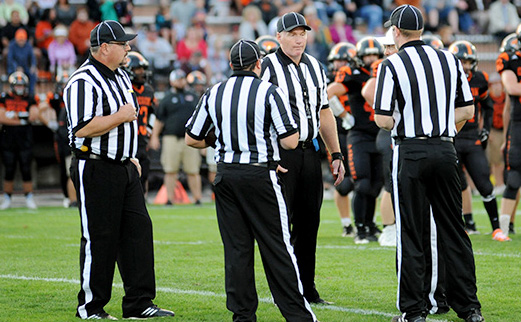Utah HSAA Pushing Toward Finalizing Rule About Using Ineligible Players
MIDVALE — While there are many issues still open for debate regarding changes to the Utah High School Activities Association’s constitution, one issue that seems to be universally supported is removing any question about what should happen if a team plays ineligible players in a game.
The UHSAA’s Executive Committee discussed various changes for several hours Wednesday and voted to recommend to the Board of Trustees several changes to the association’s current constitution. Included in the recommendations: forcing teams to forfeit any contest in which a team uses an ineligible student-athlete.
That’s not to say there won’t be any mercy.
But the exceptions will be specifically laid out and very narrow. For example, if a player is dishonest with a coach, athletic director or school, that may be basis for disqualifying the player but not penalizing the team or school.
The biggest issue seems to be who holds the initial hearing on alleged violations. Will a region board of managers hold that first hearing? Or should any question of eligibility automatically make it a hearing handled by the Executive Committee?
Part of the issue is consistency. If regions are going to hold initial hearings, the process has to be uniform. Schools would then be able to appeal to a panel made up of Executive Committee members and/or Board of Trustee members, but not both, as occurred this fall when East and Timpview dealt with ineligible players on their football teams.
Regions could act like grand juries and simply make recommendations to an Executive Committee panel, or they could make an initial decision that could be appealed by any affected party.
“The process is important,” said UHSAA attorney Mark Van Wagoner.
A board of managers at the region level could conduct proceedings for discipline and issue penalties in accordance with UHSAA rules. But questions of eligibility have generally been handled by the UHSAA’s Executive Committee as they are often more complicated and principals voting in the board of managers meetings could be seen as having conflicts of interest. For example, in the East case, that school’s principal was allowed to vote on the punishment issued to his school, as were the principals of schools who benefited from what happened to East High, he said.
“Most of the penalties are not controversial,” said Executive Committee Chairman Craig Hammer.
And, as UHSAA Associate Director Bart Thompson pointed out, “punishing a school for playing an ineligible player is much different than deciding if that player is ineligible.”
Many times, schools are reporting issues that they’ve discovered, as was the case with Timpview’s ineligible player this year. In those hearings, boards of managers are simply deciding what punishment is appropriate.
Still, that became more complicated when the punishment chosen in Timpview’s case was forfeiture of contests, as it changed the playoff seeding for 4A football.
Other changes recommended to the Board of Trustees, which meets on the issues next week, were:
• Allowing regions to keep fines that are levied by regions and allowing the UHSAA to keep fines levied by both the Executive Committee and Board of Trustees.
• Allowing for independent member schools so that schools struggling to field teams can still participate after region schedules have been set.
• Give regions clear guidelines for hearings and decide who has jurisdiction over initial eligibility hearings.
• Add the option of vacating wins if the violations were found to be in the past.
• Add that “each infraction” can be fined up to $1,500.







